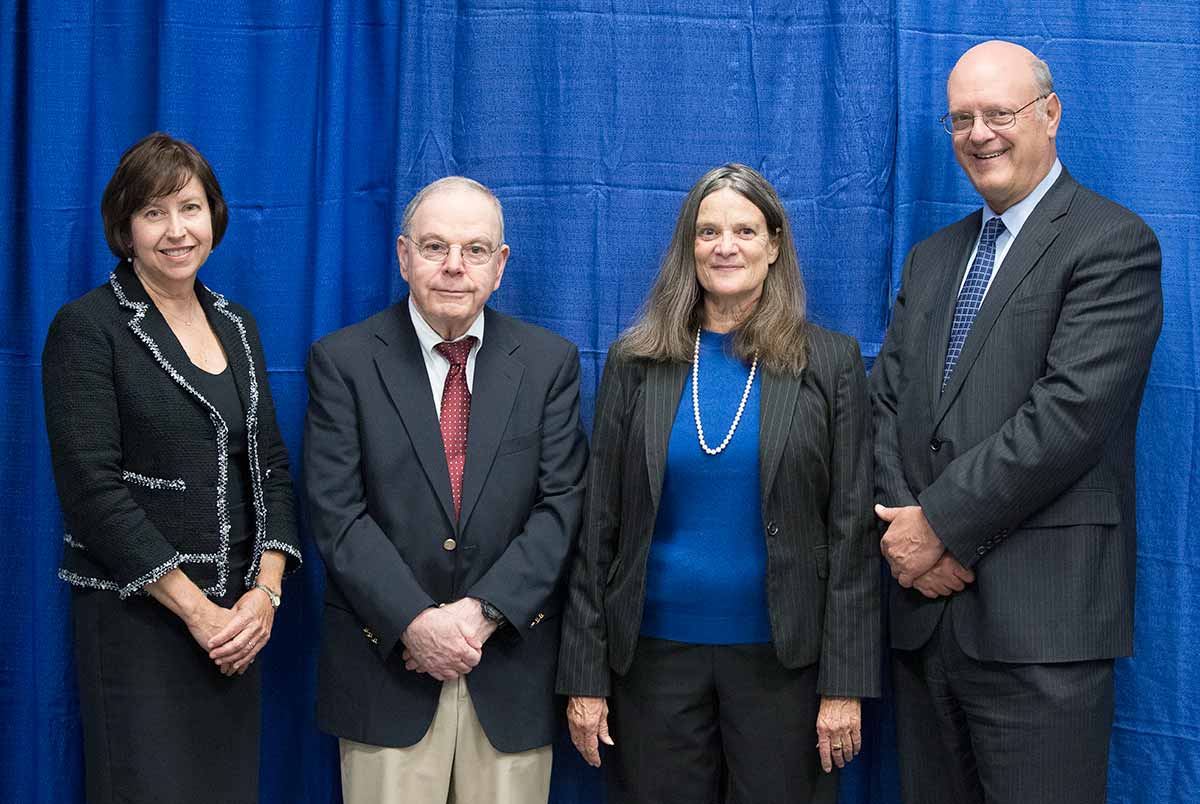Innovation Awards highlight groundbreaking research

The Center for Medical Innovation at Penn State College of Medicine honored leaders in innovation and discovery, as well as student work, during a ceremony at the University Conference Center on Oct. 17. The annual awards highlight groundbreaking research and commercialization efforts in and around Penn State Health and the College of Medicine.
“Being able to move these technologies into the marketplace is that translational research step that is a critical part of what we do,” said Dr. Craig Hillemeier, dean, CEO and senior vice president for health affairs. “The Center for Medical Innovation makes that possible.”
Dr. Leslie Parent, vice dean for research and graduate studies at the College of Medicine, said the center unites research and clinical teams with business advisors to move them forward to a license agreement, patent or startup company. “There is tremendous value in taking our discoveries from the lab into the clinic and then into the community to maximize on impact.”
Patricia McLaughlin, MS, DEd, a professor in the Department of Neural and Behavioral Sciences, and Dr. Joseph Sassani, professor and vice chair for clinical affairs in the Department of Ophthalmology and a professor in the Department of Pathology, shared the Innovator of the Year award for successfully licensing their diabetic dry eye technology to Ocunova Inc., which is in clinical trial.
They also secured a finalist position within the Philadelphia Science Center accelerator program for another technology focused on diabetic foot ulcers. McLaughlin and Sassani hold multiple patents and submitted more than 40 inventions over the past 20 years.
Dr. Stephen Hicks, assistant professor in the Department of Pediatrics, was named the 2018 Investigator to Watch for his work using microRNA in developing a quick, objective, highly sensitive and specific screening tool for autism. MicroRNA is one of four technologies that has been licensed to industry and is currently being developed into a diagnostic instrument.
Scott Tucker, a student in the Medical Scientist Training Program, received the Student Award for Excellence in Innovation for his development of a wrist joint replacement device that offers biomechanical advantages over existing designs.
After the awards ceremony, CMI Director Kevin Harter moderated a panel discussion about future innovations in health care ranging from new technologies to novel care models.
The panelists were Sarah Ahmad, senior vice president, Innovation and Transformation Strategy for Highmark Health; Derek Holt, president, K4Connect; Matthew Lawrence, assistant professor of law at Penn State Dickinson School of Law; and Stephanie Reisinger, vice president of Life Sciences Research Analytics at Allscripts.
If you're having trouble accessing this content, or would like it in another format, please email the Penn State College of Medicine web department.
